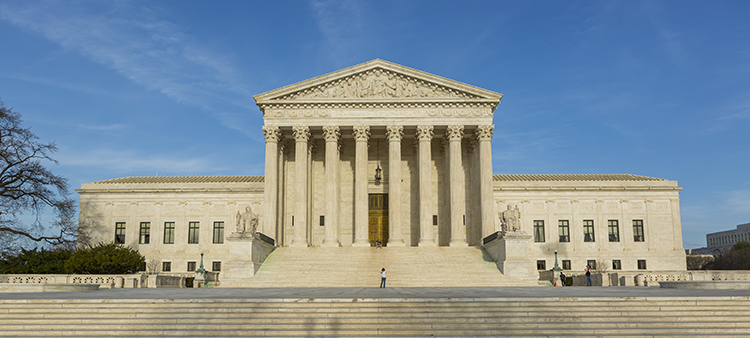What is Justice Ginsburg's message to young feminists?
Justice Ruth Bader Ginsburg expressed concerns about a worst-case scenario–the overruling of Roe v. Wade–and the lack of support for the Equal Rights Amendment in an interview published on Sunday.
In a Q-and-A with Jeffrey Rosen for the New Republic, Ginsburg says the Supreme Court will never overrule Roe v. Wade if it respects precedent. But if Roe v. Wade were overruled, she said, it would be bad for lower-income women. “If we imagine the worst-case scenario, with Roe v. Wade overruled,” she said, “there would remain many states that would not go back to the way it once was. What that means is any woman who has the wherewithal to travel, to take a plane, to take a train to a state that provides access to abortion, that woman will never have a problem. It doesn’t matter what Congress or the state legislatures do, there will be other states that provide this facility, and women will have access to it if they can pay for it. Women who can’t pay are the only women who would be affected.”
Ginsburg was also asked about her message to a new generation of feminists who look to her as a role model. In her answer, she said women should work for things they care about and expressed concern that young women don’t seem to care that the Constitution lacks an Equal Rights Amendment, something she and many other young women supported in the 1970s.
“One thing that concerns me,” Ginsburg said, “is that today’s young women don’t seem to care that we have a fundamental instrument of government that makes no express statement about the equal citizenship stature of men and women. They know there are no closed doors anymore, and they may take for granted the rights that they have.”
Rosen also asked Ginsburg to name the worst ruling the current court has produced. Ginsburg responded: “If there was one decision I would overrule, it would be Citizens United. I think the notion that we have all the democracy that money can buy strays so far from what our democracy is supposed to be. So that’s number one on my list.”
Number two, she said, was part of the decision upholding the Obama administration’s health care law that said Congress did not have the authority under the commerce clause to adopt an insurance mandate for employers. The decision instead upheld the law under Congress’ taxing authority.
“Since 1937, the court has allowed Congress a very free hand in enacting social and economic legislation,” Ginsburg said. “I thought that the attempt of the court to intrude on Congress’ domain in that area had stopped by the end of the 1930s. Of course health care involves commerce.”
The third worst decision, she said, might be “Shelby County, involving essentially the destruction of the Voting Rights Act.”
Hat tip to How Appealing.



